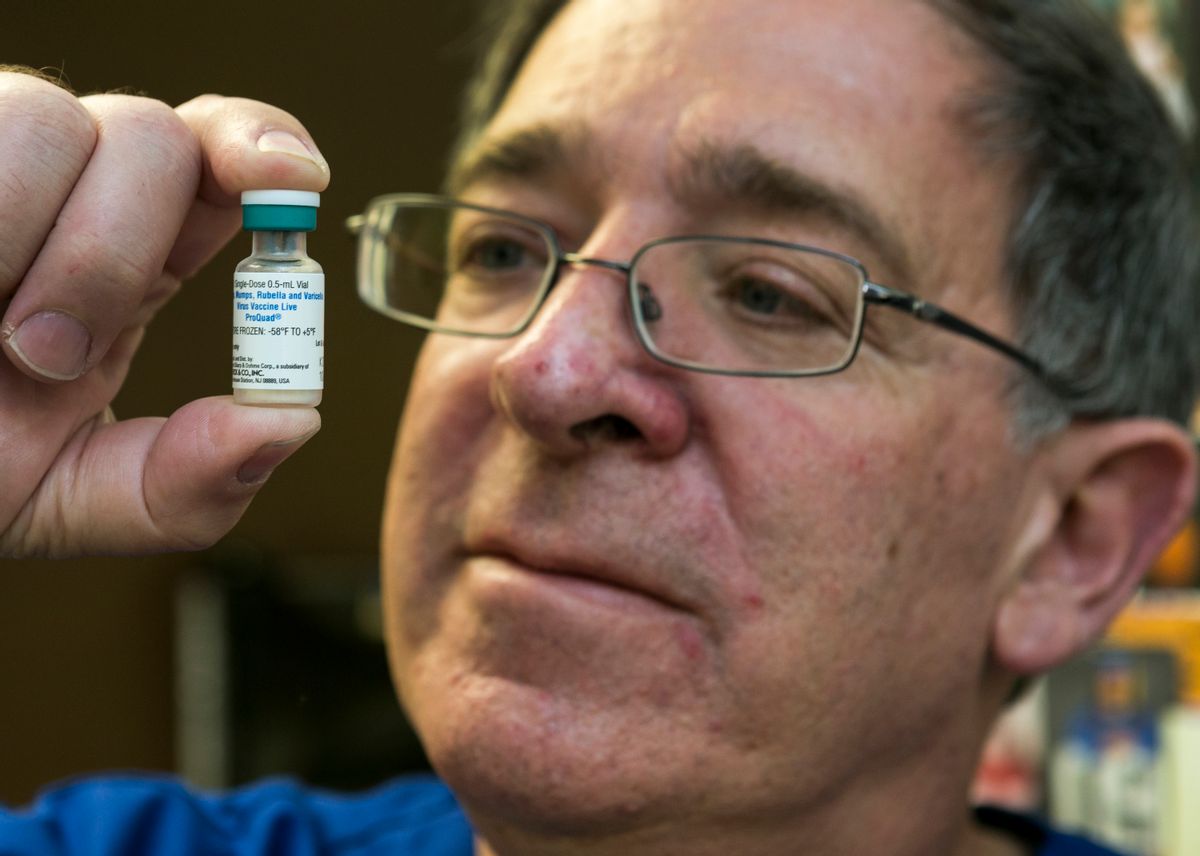LOS ANGELES (AP) — With California gripped by a measles outbreak, Dr. Charles Goodman posted a clear notice in his waiting room and on Facebook: His practice will no longer see children whose parents won't get them vaccinated.
"Parents who choose not to give measles shots, they're not just putting their kids at risk, but they're also putting other kids at risk — especially kids in my waiting room," the Los Angeles pediatrician said.
It's a sentiment echoed by a small number of doctors who in recent years have "fired" patients who continue to believe debunked research linking vaccines to autism. They hope the strategy will lead parents to change their minds; if that fails, they hope it will at least reduce the risk to other children in the office.
The tough-love approach — which comes amid the nation's second-biggest measles outbreak in at least 15 years, with at least 98 cases reported since last month — raises questions about doctors' ethical responsibilities. Most of the measles cases have been traced directly or indirectly to Disneyland in Southern California.
The American Academy of Pediatrics says doctors should bring up the importance of vaccinations during visits but should respect a parent's wishes unless there's a significant risk to the child.
"In general, pediatricians should avoid discharging patients from their practices solely because a parent refuses to immunize his or her child," according to guidelines issued by the group.
However, if the relationship between patient and doctor becomes unworkable, the pediatrics academy says, the doctor may want to encourage the vaccine refuser to go to another physician.
Some mothers who have been dropped by their doctors feel "betrayed and upset," said Dotty Hagmier, founder of the support group Moms in Charge. She said these parents made up their minds about vaccines after "careful research and diligence to understand the risks versus the benefits for their own children's circumstances."
Dropping patients who refuse vaccines has become a hot topic of discussion on SERMO, an online doctor hangout. Some doctors are adamant about not accepting patients who don't believe in vaccinations, with some saying they don't want to be responsible for someone's death from an illness that was preventable.
Others warn that refusing treatment to such people will just send them into the arms of quacks.
The measles-mumps-rubella vaccine, or MMR, is 97 percent effective at preventing measles, according to the Centers for Disease Control and Prevention.
Measles spreads easily through the air and in enclosed spaces. Symptoms include fever, runny nose, cough and a rash all over the body. In rare cases, particularly among babies, measles can be deadly. Infection can also cause pregnant women to miscarry or give birth prematurely.
All states require children to get certain vaccinations to enroll in school. California is among 20 states that let parents opt out by obtaining personal belief waivers. Some people worry that vaccines cause developmental problems, despite scientific evidence disproving any link. Others object for religious or philosophical reasons.
Nationally, childhood measles vaccination rates have held steady for years at above 90 percent. But there seem to be growing pockets of unvaccinated people in scattered communities, said Dr. Gregory Wallace of the CDC.
In recent years, nearly all U.S. measles cases have been linked to travelers who caught the virus abroad and spread it in this country among unvaccinated people.
Northern California's Marin County has a high rate of people claiming personal belief exemptions. In 2012, Dr. Nelson Branco and his partners at a Marin County practice started turning away toddlers whose parents refused to make sure they received the measles vaccine.
Branco said 10 to 20 of his practice's 8,000 or so patients left after the change.
Vaccines "can be spooky for parents," Branco said. But "in the end, we have the science. We have the experience that it's the right thing to do."
___
AP Medical Writer Mike Stobbe contributed to this report. Follow Alicia Chang on Twitter at @SciWriAlicia



Shares